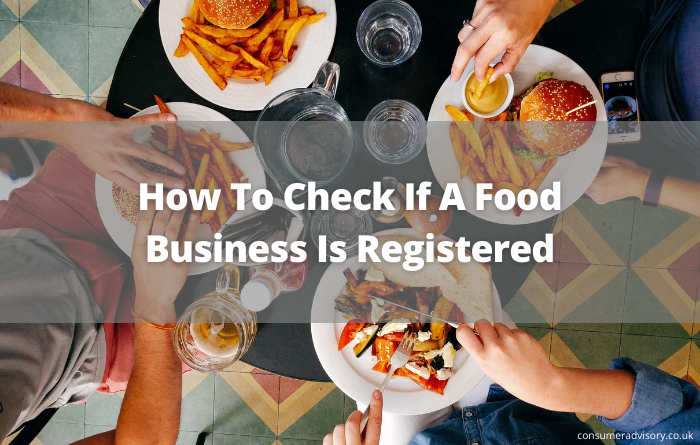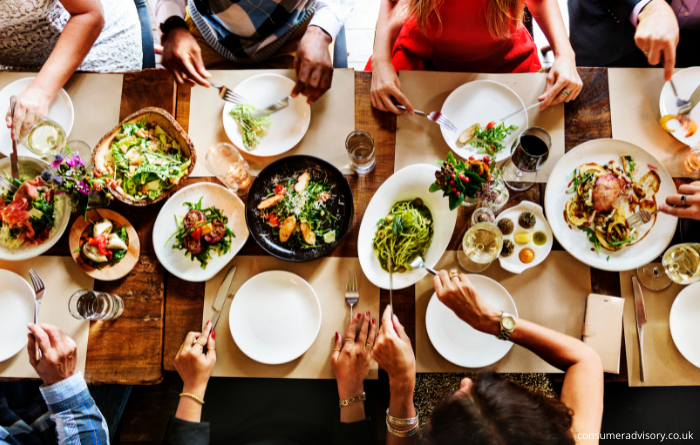
If you’ve come across a new food business or restaurant, you might be wondering how to check if a food business is registered. To do this, you can search for the business on the Food Hygiene Ratings website, or contact your local Food Standards Agency office.
In this article, we’ll tell you everything you need to know about businesses operating in the food and beverage industry, from what the registration requirements are to how you can report a business that you believe is operating illegally.
When Must A Food Business Be Registered With The Local Authority?
Every food business in the UK is required to register with their local authority. This includes businesses that make, sell, store, handle or distribute food. If you’re not sure whether your business needs to be registered, you can contact your local authority for advice.
The types of businesses that must register include:
- Restaurants
- Takeaways
- Caterers
- Food businesses in the home
- Nurseries, schools and care homes
- Manufacturers of food products
- Retailers of food products
How To Register A Food Business
The registration process for a food business is relatively straightforward. You’ll need to complete a registration form and return it to your local authority, along with any relevant documentation. The form will ask for basic information about your business, such as your contact details and the type of food you’ll be serving.
You may also be required to pay a registration fee, although this will vary depending on your local authority.
Once your business is registered, you’ll be issued with a registration certificate that must be displayed in a prominent place within your premises.
It’s important to note that you must register your business before you start trading. If you’re found to be operating without a valid registration, you could face legal action and be fined.

Change Of Ownership
If there’s a change of ownership at an existing food business, the new owner must notify the local authority and apply for a new registration certificate.
This must be done within 28 days of the change taking place, and the new owner will need to provide proof that they’re taking over the business, such as a copy of the lease agreement.
What Are The Penalties For Operating An Unregistered Food Business?
If you’re caught operating a food business without a valid registration, you could face legal action and be fined. The maximum fine for operating an unregistered food business is £5,000.
You may also be ordered to stop trading until your business is registered and compliant with the law.
Do All Food Premises Need To Be Registered?
All businesses that prepare, store, sell or distribute food are required to be registered with the local authority. Failure to register your food business is a criminal offence, and you could face legal action and a fine if you’re caught operating without a valid registration.

How Do You Check If A Food Business Is Registered UK?
The best way to check if a food business is registered in the UK is to search for the business on the Food Hygiene Ratings website. This website allows you to search for businesses by name, location or postcode.
You can also contact your local authority and ask for a list of registered food businesses in your area.
Can I Sell Food Without A Food Hygiene Certificate?
No, you cannot sell food without a food hygiene certificate. All businesses that prepare, store, sell or distribute food must have a valid food hygiene certificate.
If you’re caught selling food without a valid certificate, you could face legal action and be fined.
What Certificates Do I Need To Sell Food UK?
There are two types of certificates you’ll need to sell food in the UK:
- A food hygiene certificate, which proves that you and your staff have the necessary skills and knowledge to handle food safely.
- A food business registration certificate, which proves that your business is registered with the local authority.
You can apply for both of these certificates from your local authority.
Do I Need A Food Hygiene Certificate To Sell Home Baked Goods?
Yes, you will need a food hygiene certificate to sell home baked goods. This is because home baking is classed as a food business, and all businesses that prepare, store, sell or distribute food must be registered and have a valid food hygiene certificate.
If you’re caught selling home baked goods without a valid certificate, you could face legal action and be fined.
Can I Sell Food From My Home?
Yes, you can sell food from your home, but you’ll need to register your business with the local authority and obtain a food business registration certificate. You’ll also need to obtain a food hygiene certificate, which proves that you have the necessary skills and knowledge to handle food safely.
If you’re caught selling food without a valid registration or food hygiene certificate, you could face legal action and be fined.

How Do I Report Someone For Selling Food From Home UK?
If you suspect that someone is selling food from home without a valid registration or food hygiene certificate, you can report them to your local authority. You can find the contact details of your local authority’s food safety team here.
When you report an unregistered food business, your local authority will investigate the matter and take appropriate action if necessary.
How To Get A Food Hygiene Certificate
If you want to get a food hygiene certificate, you’ll need to complete a food safety course. There are many different types of food safety courses available, and you can find one that’s suitable for your needs here.
Once you’ve completed a food safety course, you’ll be issued with a food hygiene certificate. You may find that your local authority requires you to have taken a food hygiene course before you can register your food business.
Can I Get A Food Hygiene Certificate Online?
Yes, you can get a food hygiene certificate online. There are many different types of food safety courses available online, so you should be able to find one that’s suitable for your needs.
Once you’ve completed a food safety course, you’ll be issued with a food hygiene certificate. You may find that your local authority requires you to have taken a food hygiene course before you can register your food business.
Who Is Responsible For Enforcing Food Legislation?
The responsibility for enforcing food legislation in the UK falls to local authorities. Local authorities are responsible for carrying out food inspections and taking action against businesses that aren’t following the law.
If you have any concerns about the way a food business is being run, you can contact your local authority and they will investigate the matter.
What Happens If I Don’t Comply With Food Hygiene Regulations?
If you don’t comply with food hygiene regulations, you could face legal action. This could include a fine or even a prison sentence. Your food business will also be ordered to close until it is properly registered.
It’s important to note that not complying with food hygiene regulations is a criminal offence. This means that you could be prosecuted in court if you’re found to be breaking the law.
Can I Be Prosecuted If I Don’t Have A Food Hygiene Certificate?
Yes, you can be prosecuted if you don’t have a food hygiene certificate. This is because not having a food hygiene certificate is a criminal offence.
If you’re caught selling food without a valid food hygiene certificate, you could face legal action and be fined.
What Is Food Hygiene?
Food hygiene is the process of keeping food safe to eat. This includes ensuring that food is prepared and stored correctly, and that it’s cooked properly.
Food businesses must follow strict food hygiene rules to ensure that the food they serve is safe to eat.
If you’re thinking of starting a food business, or you already have one, it’s important that you understand the basics of food hygiene. This will help you to keep your customers safe and avoid breaking the law.
Can You Sell Cakes On Facebook?
Yes, you can sell cakes on Facebook. However, you’ll need to make sure that you’re following the law.
If you want to sell cakes on Facebook, you’ll need to register your food business with your local authority. You’ll also need to get a food hygiene certificate. Once you’ve done this, you’ll be able to start selling cakes on Facebook.
You’ll also need to ensure that you register as self employed with HMRC.
In Summary
If you have recently discovered a new food business that you’re thinking of trying out, you might be wondering how to check if a food business is registered. After all, you can never be too careful.
The easiest way to check if a food business is registered is to search for it on the Food Standards Agency’s (FSA) website. If the business is registered, you’ll be able to find their registration number and contact details on the FSA website. If you can’t find the business on the FSA website, it’s a good idea to contact your local authority and ask them to check if the business is registered.
